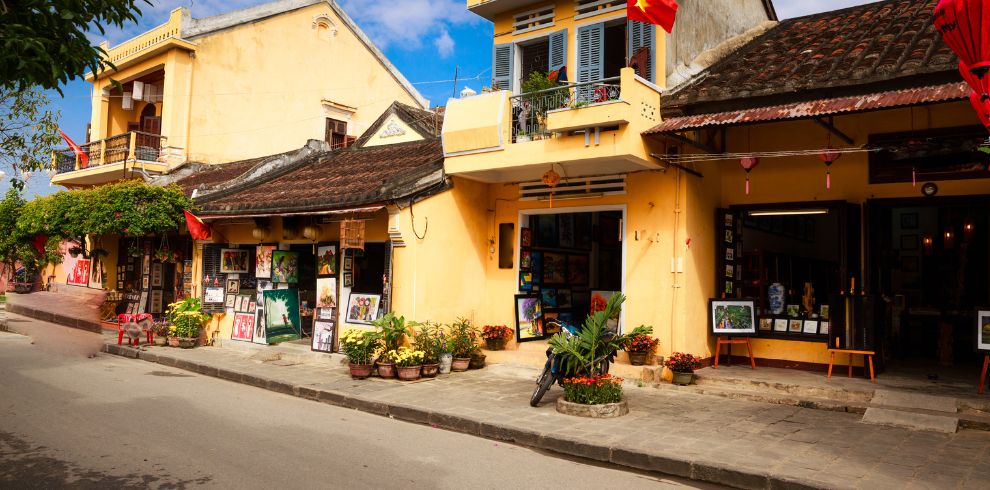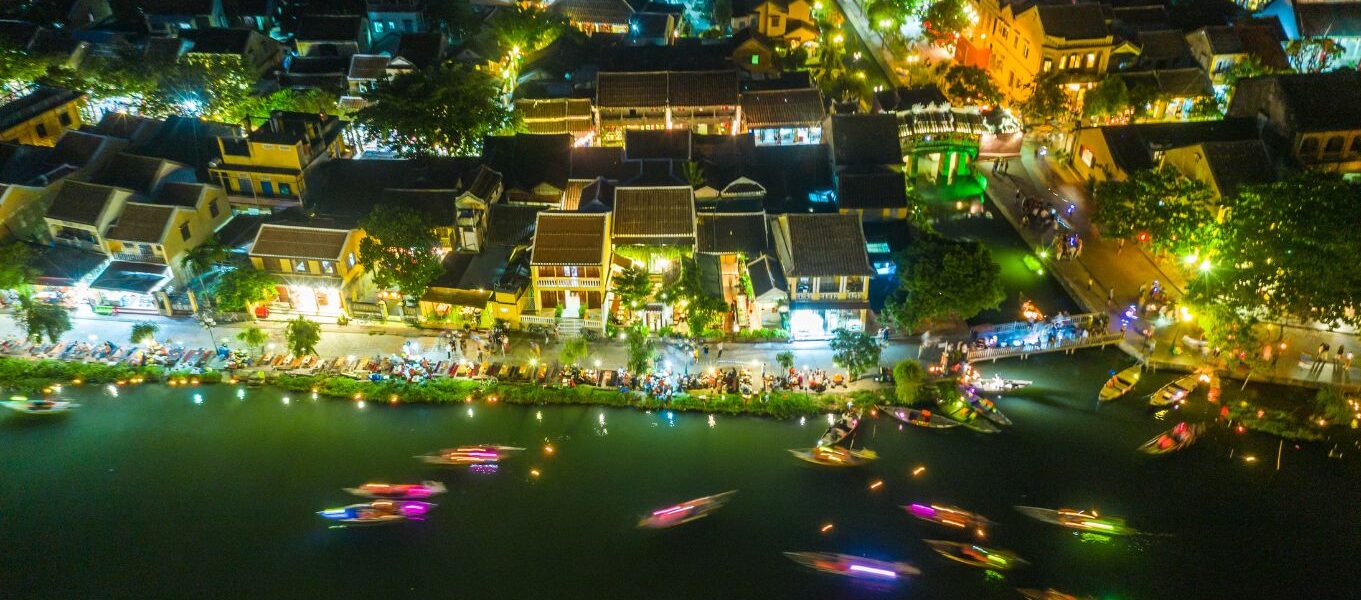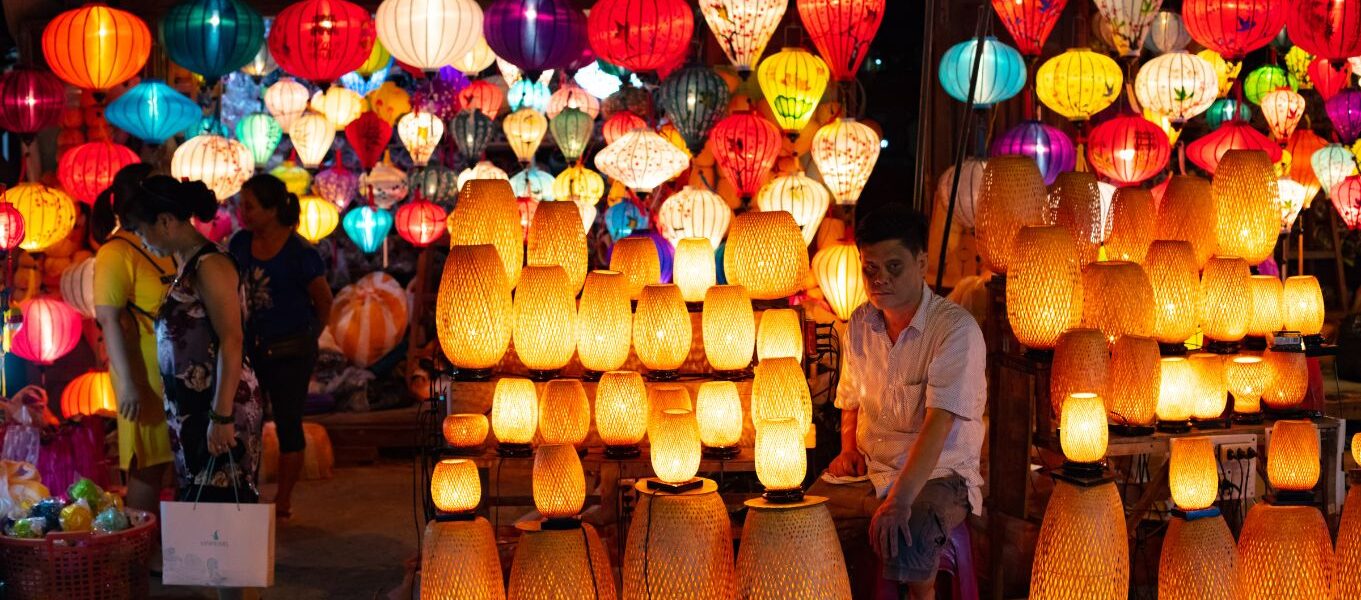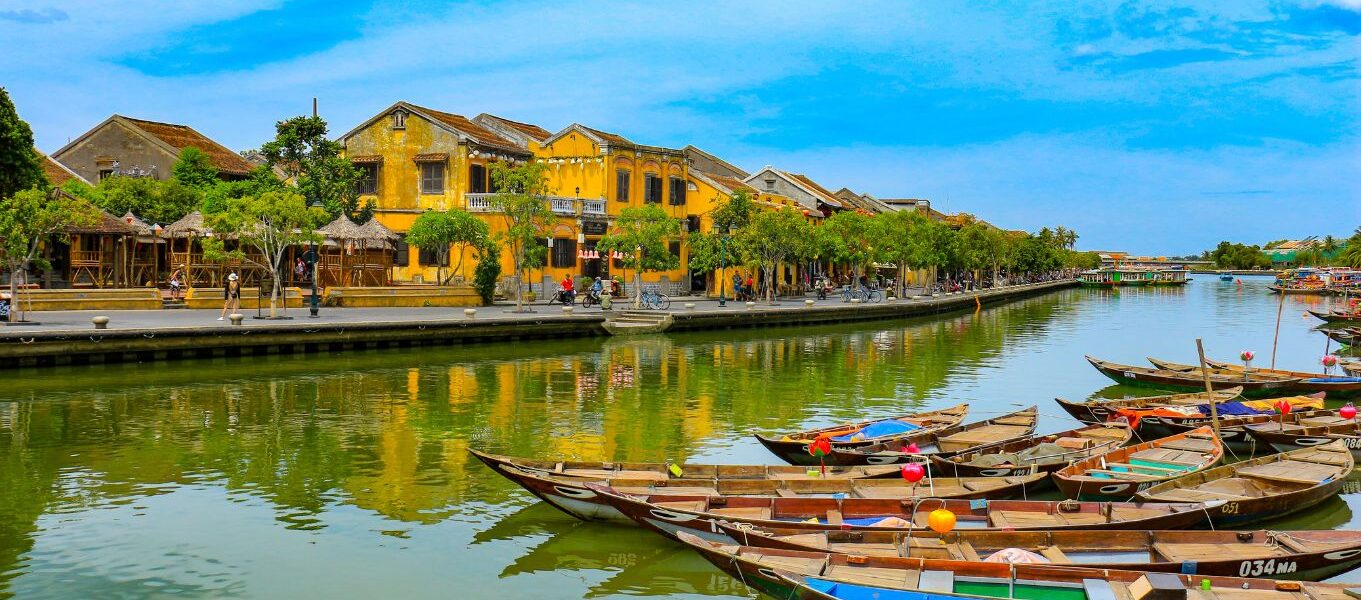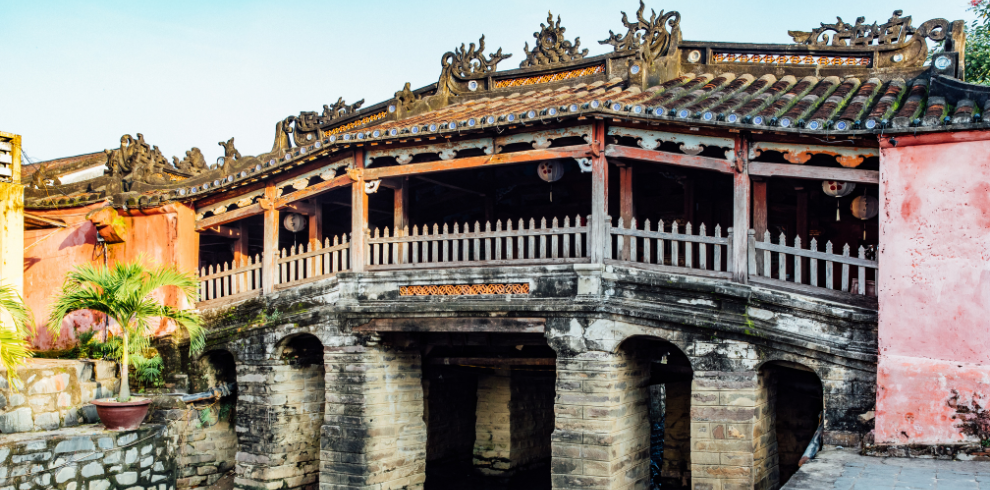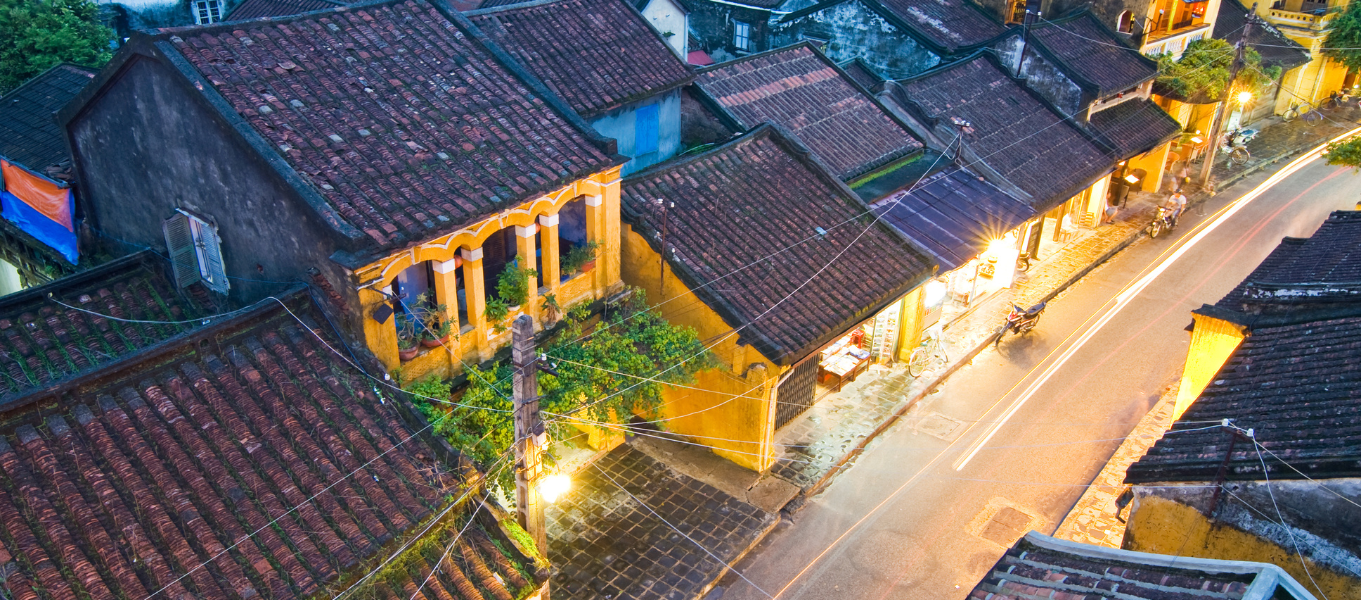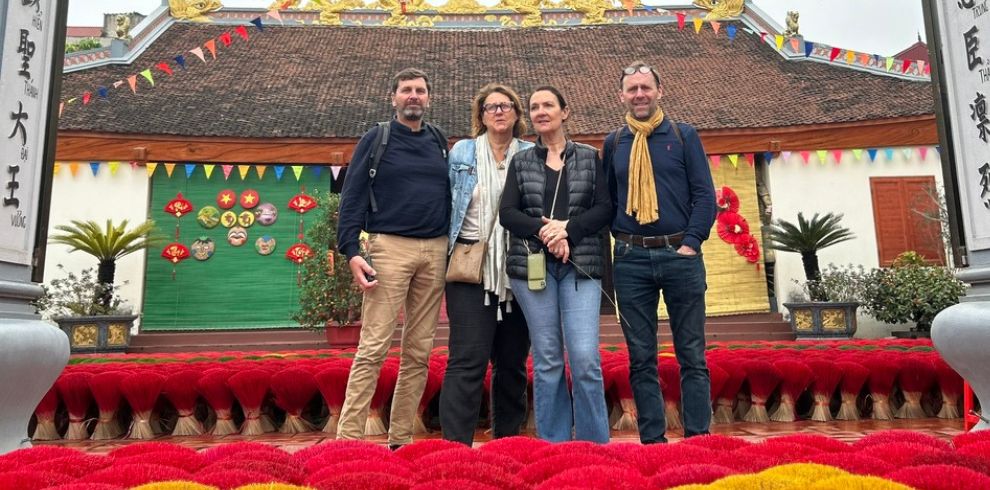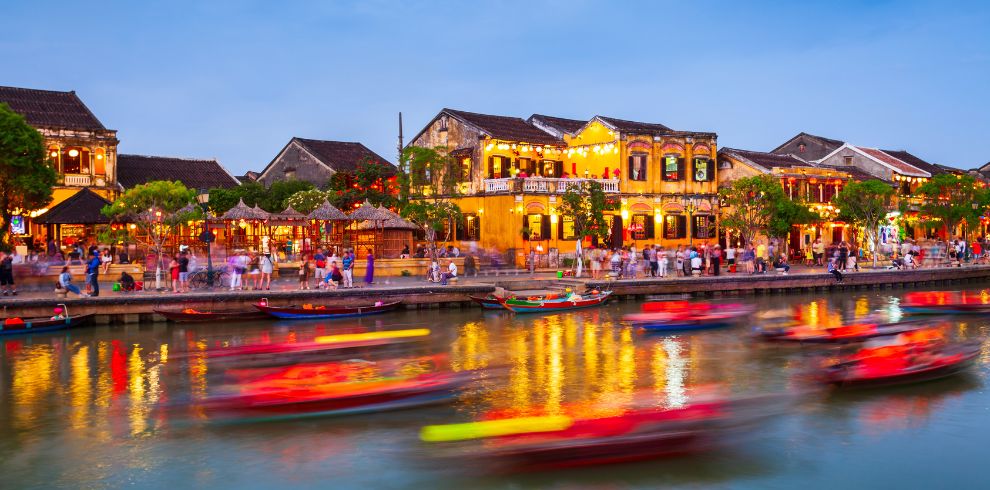Embark on a full-day journey to the enchanting ancient town of Hoi An, nestled along the charming Thu Bon River. Discover the town’s rich history and vibrant local culture while experiencing the tranquil daily life of its residents.
-
Hoi An
-
Da Nang
-
Easy
-
1 Lunch
-
Group and Private
Overview
- Start/End: Danang/Danang
- Visit: Hoi An
- Duration: 01 Day
- Travel style: Most popular, Culture and Heritage
- Category: Private tour
- Tour guide in: English, Français, Español
Highlights
- Visit the iconic Japanese Bridge
- Explore a traditional Chinese Assembly Hall
- Tour historic ancient houses
- Engage with the friendly locals
- Enjoy leisurely walks through the town
- Take an excursion to Tra Que Eco-Farming Village
Itinerary
Morning:
Begin your day with a pickup from your hotel and head to the historic town of Hoi An. Your first stop is Cam Pho, one of the oldest communal houses in Hoi An, built in the shape of a Chinese character symbolizing the country. This site has been a center for worship, trade, and cultural exchange among locals, Chinese, and Japanese traders.
Take a short walk to the iconic Chua Cau, also known as the Japanese Covered Bridge. Built in the 17th century, this bridge connected the Japanese and Chinese neighborhoods and has retained its original charm for over 400 years.
Next, visit the Quan Thang Ancient House, one of the most authentic old houses in Hoi An, featuring lively and intricate architecture and sculptures crafted by artisans from the famous Kim Bong carpentry village. This house offers a fascinating glimpse into the daily life of a traditional Hoi An family.
Late Morning:
Continue to the Phuc Kien (Fujian) Assembly Hall, established in the 17th century as a gathering place for Fujian residents, traders, and visitors. This hall is also a religious site honoring the deity Thien Hau. Admire the colorful fountains in the courtyard, the ornate gates, and the beautifully carved dragons in the main room.
Midday:
Take a break for lunch and enjoy some free time to explore the city and do some shopping.
Afternoon:
On your way back to Da Nang, make a short excursion to Tra Que Organic Vegetable Village. This village is known for its aromatic herbs, including mint and basil, which have a unique flavor due to the rich soil. Explore the vegetable fields and meet the local farmers who work year-round.
Return to your hotel in the late afternoon, concluding your memorable tour of Hoi An.
Tour Included
- Guided Tour: An English-speaking tour guide to accompany you throughout the journey.
- Entry Fees: All entrance fees and tickets as listed in the itinerary.
- Private Transportation: A private car to ensure a comfortable journey throughout the tour.
- Meals: 1 Lunch
- Additional Costs: Service charges and taxes are covered.
Tour Excluded
- Flights: International flights to and from your home country.
- Insurance: Travel insurance is not covered.
- Personal Expenses: Any personal spending is on your own.
- Tips: Tipping and gratuities are not included.
- Additional Items: Anything not specifically mentioned in the itinerary.
Hoi An’s ancient town is famous for its well-preserved architecture, including the Japanese Covered Bridge, ancient houses like Tan Ky and Phung Hung, and various assembly halls such as the Fujian Assembly Hall.
The most convenient way is by car or shuttle bus, which takes about 45 minutes to 1 hour. You can also rent a motorbike for a more adventurous trip.
In Tra Que village, you can participate in farming activities, learn about traditional Vietnamese agriculture, and enjoy a cooking class to make local dishes using fresh ingredients from the village.
Yes, there is an entrance fee of around 120,000 VND (approximately $5 USD) for international visitors, which includes access to several historical sites within the town.
Comfortable clothing and walking shoes are recommended. Since you’ll be visiting temples and historical sites, it’s also a good idea to dress modestly.
Yes, guided tours are available and highly recommended to get the most out of your visit. Guides can provide in-depth information about the history and culture of the area.
The best time to visit is from February to April and August to October when the weather is pleasant and there is less rainfall.
Absolutely! Hoi An is known for its tailor shops, lanterns, and handicrafts. You can also find unique souvenirs like ceramics, silk, and traditional paintings.
Yes, it is possible. A typical itinerary includes a morning visit to Hoi An’s ancient town followed by an afternoon in Tra Que village, allowing you to experience both locations fully.
Many tours include meals, especially lunch, which often features local cuisine. It’s best to check with your tour provider for specific details.


